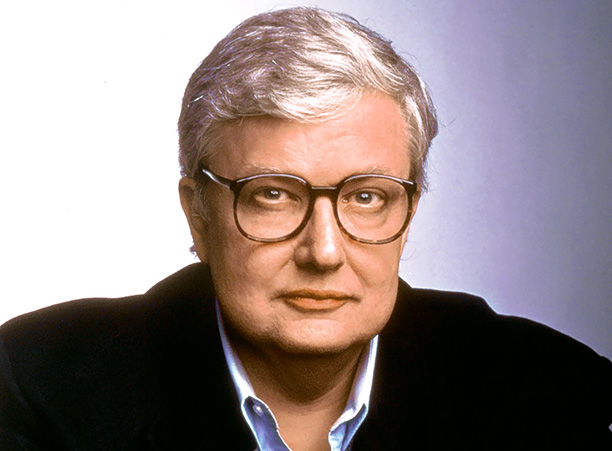Video Games and their Evolution as Art - Part I: Foundations
art \ärt\ noun the expression or application of human creative skill and imagination, typically in a visual form such as painting or sculpture, producing works to be appreciated primarily for their beauty or emotional power.
Disclaimer: The views expressed in this blog post series are strictly the views of myself, VivaBauer007, and do not in any way represent the views, opinions or standards of LDSGamers. The games referenced herein should not be interpreted as being endorsed by LDSGamers. Huge spoilers are also laced throughout this post.
Over ten years ago, I was dismayed to learn that one of my favorite movie critics gave my favorite past-time a thumbs down, or at least that's what I thought he had done. I felt betrayed! How could Roger Ebert view Video Games with such disdain? To give the actual situation more context, let me post a "brief" summary of his position from a Wikipedia article.
The question rose to wide public attention in the mid-2000s when film critic Roger Ebert participated in a series of controversial debates and published colloquies. In 2005, following an online discussion concerning whether or not knowledge of the game Doom was essential to a proper appreciation of the film Doom (which Ebert had awarded one star) as a commentary on the game, Ebert described video games as a non-artistic medium incomparable to the more established art forms:
To my knowledge, no one in or out of the field has ever been able to cite a game worthy of comparison with the great dramatists, poets, filmmakers, novelists and composers. That a game can aspire to artistic importance as a visual experience, I accept. But for most gamers, video games represent a loss of those precious hours we have available to make ourselves more cultured, civilized and empathetic.
— Roger Ebert

Roger Ebert: Excellent Film Critic, with quite possibly one of the most famous thumbs. 1942-2013
In 2006, Ebert took part in a panel discussion at the Conference on World Affairs entitled "An Epic Debate: Are Video Games an Art Form?" in which he stated that video games don't explore the meaning of being human as other art forms do. A year later, in response to comments from Clive Barker on the panel discussion, Ebert further noted that video games present a malleability that would otherwise ruin other forms of art. As an example, Ebert posed the idea of a version of Romeo and Juliet that would allow for an optional happy ending. Such an option, according to Ebert, would weaken the artistic expression of the original work. In April 2010, Ebert published an essay, dissecting a presentation made by Kellee Santiago of thatgamecompany at the 2009 Technology Entertainment Design Conference, where he again claimed that games can never be art, due to their rules and goal-based interactivity.
One obvious difference between art and games is that you can win a game. It has rules, points, objectives, and an outcome. Santiago might cite an immersive game without points or rules, but I would say then it ceases to be a game and becomes a representation of a story, a novel, a play, dance, a film. Those are things you cannot win; you can only experience them.
— Roger Ebert
He further elaborated his viewpoint on his website, and now that I am grown I can understand him a bit better. I also don't take his remarks as an attack. So, to be clear, this isn't a "Let's Bash Roger Ebert" article. I still do have differences of opinion with him, but where those differences likely exist is based on what the definition of art is. My purpose in this blog post is to talk about where video games have originated from, and how they are starting to make great strides toward what I legitimately feel is art.
While I started this blog post with a dictionary definition of art, I think attempting to define what art is, is absolutely essential for the success of this discussion. It's a deep one. All Art 101 classes start with it, and I highly doubt I can change the world with an isolated blog post. However, I do hope to share my thoughts clearly and spark some respectful debate on the subject.
As stated, art must be created or captured by a sentient source. This allows portraits, photographs, paintings, music, compositions, films, decorations to all exist as an art form. By this definition, video games could also be art, so there has to be more. Quality, I think plays a part as to what might be considered art. Let's look at a couple similar photos that I found from the internet.

Artistic

Not Artistic
Quality is subjective to be sure, but the framing, clarity or talent that a piece of art is created with can make something transcend its initial state. A drawing, becomes a portrait. A movie, becomes a film. A tune, becomes a symphony. A novel, becomes literature. In these two pictures from National Cemeteries, image focus, framing and the emotion captured certainly play a part as to which one more closely approximates art.
Evolution, also has something to do with how art is perceived in the future. Ancient cave drawings may have been considered art by their original creators, but to a renaissance painter, they were probably nothing more than a quaint, inferior drawing to place your own mural over. However, many historical artists are considered masters to this day. Picasso, van Gogh, Monet, Bloch, Vermeer, Rembrandt, Giorgione, Michelangelo, Raphael, Da Vinci and Donatello are still considered master artists, yet they represent different periods of art. Something is timeless in their works, yet not all of their works may have been considered masterful or timeless. Do their artistic contributions still move us somehow? Yes. Did they move their contemporaries? Maybe. We certainly know that in some cases, artists were derided by their contemporaries, but are seen today as the masters they are. Will people like Hideo Kojima, Shigeru Miyamoto, Peter Molyneux or Jordan Mechner be viewed as master Video Game creators in 100 years? Only time will tell.

From Super Mario to Marios Supremus
I think another contributing factor as to whether something may be considered art by an individual, is whether it moves you somehow. Does the beauty take your breath away? Does the melody stir tender memories from times gone past? Does the writing make you contemplate your own choices or motivations? I have seen pieces of art that inspire people, which I just don't get. Cubism is beyond me. Yet, for others, it reaches some place in their soul. There are also ubiquitous portraits and bowls of fruit that are without a doubt art, but don't elicit any emotional response in me. It seems to be their rendition of a life-like nature, or their interpretation of the subject matter that gives them places in galleries around the world.
This brings me to another point. Does a work only attain the distinguished designation of "Art" if a board or panel deems it so? May it be an artform to an individual and still be worthy of being called, "Art?" I can acknowledge that cubism is art, even if I don't get it. Yet the future scribbles of my now-infant son may be placed prominently on my fridge and be art to my family for years to come, yet they would never be framed in any museum, except that of our own home. I think there is a societal criteria that exists, yet something can be art to an individual and may very well affect them for a lifetime.
As this is a blog post and not a dissertation, I will move on. How does this all fit in with video games? In recent years, I have played games that depicted recognizable, nuanced emotion on the characters faces. I have seen landscapes that were stunningly beautiful. There were also sequences that generated gratitude and sympathy that hadn't existed before, and there were moments where I had to share what I had just seen and heard because I was grappling with very difficult emotions. While the entirety of some of these games I am referencing could be considered art, some of these games only had artistic moments. It was only a section of music, particular cut scenes or landscapes that were unquestionably artistic. However, video games have not always been this way.

Pong: Monocullular Lifeforms/Pixelated Beginnings
A long time ago, in a living room far, far away, Pong was the first video game. If anything were to be considered "cave drawings", this would be it. Yet this is where it began. I wouldn't even try to call Pong art, but it was a new technology where turning a wheel moved a "paddle" and it could bounce a "ball" back towards your opponent. This would continue until a competitor missed the "ball" and a point was scored. It's a digital recreation of table tennis. You gotta start somewhere. As technology is wont to do, games evolved, colors arrived from the initial white, green or amber monochrome screens and games like Pac-Man, Frogger and Pole Position dotted the landscape.
Video games continued to develop, but ultimately they were on the verge of collapse until Nintendo brought video gaming back from the brink of extinction. Super Mario Bros. is often credited with single handedly saving the video gaming industry. Surprisingly, it is still enjoyable to play today. Even last year a guy made a new speed-run world record. Games like Tetris and The Legend of Zelda still are recognizable in most households, even if they don't play video games. Myriad iterations of these franchises have been released over the years, helping to keep them fresh and popular, but they all started as 8-bit pixelated wonders. They aren't art though. Even the most modern Zelda, which I adore, contains a beautiful artistic and detailed landscape, accented with wildlife and monsters to give it life, but at its core, Breath of the Wild, is a game filled to the brim with ingenious puzzles and brain teasers.
I would say that the older generations of games and still many modern ones in fact fall into broad categories as well done sports/life simulations, or fascinating digital brain teasers that may or may not have battle elements. I enjoy them, but no deep emotional experiences usually occurred while playing them. I have felt triumphant, frustrated or even surprised, but I was never moved by an 8-bit game. I did have a lot of fun though. For that matter there are very few games until the recent decade that have actually moved me and might be considered art, in part, let alone in their entirety, but games had to start somewhere and there is no doubt that their evolution from the 70's has been rapid.

Pac-Man: A Classic with a 1080p Facelift
That's all for now. In the next installment to this series, I will get into more specifics, but for this post we just needed to start the discussion, and get people thinking.

Comments